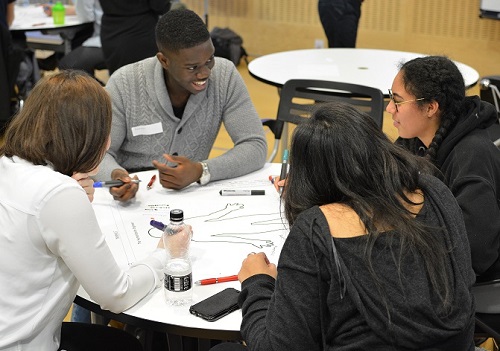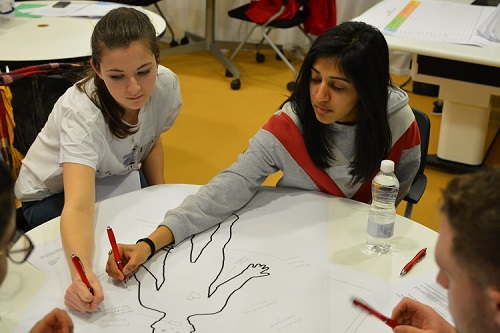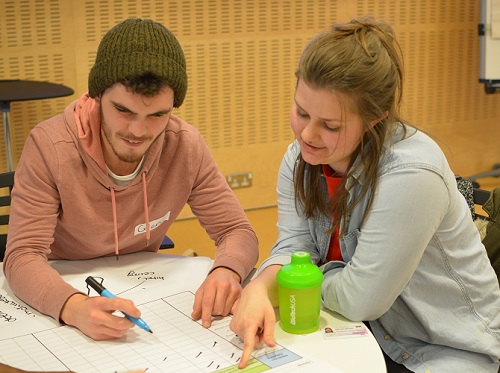Developing a student-driven educational model between, beyond and across disciplines
“You are a student and can’t decide between Engineering, Economics, & Politics? Neither can we.”
The aim of the project is to develop a conceptual model for exploring the ways in which students act as co-producers of learning beyond traditional disciplinary boundaries.
Take part in our research by completing our short survey.
This is an innovative pedagogically experimental project seeking to develop a conceptual model which allows students to co-create interdisciplinary learning with the challenge being to develop a framework that addresses this properly. The objectives of the educational model will be to produce enterprising, outward-looking graduates who are both equipped to meet society’s newest and pressing challenges, and employer’s demands for advanced skills and knowledge, while translating these skills into the students’ chosen arena.
The innovation being that students who are less tied (than academics) to the bounded nature of a particular discipline will be more able to develop and seek learning between, beyond and across disciplines.
The programme will engage students in interdisciplinary analytical and critical thinking, creativity, and global awareness, social and ethical perspectives for science. The students will have the chance to explore education opportunities for their own interests and needs. The education model should aim at engaging different stakeholders, beneficiaries and users (e.g. industry, policy-makers, local communities) so that knowledge is orientated towards real world problems and challenges. Special interest will be drawn towards promoting inclusiveness, internationalisation, equality and diversity.
The educational model will promote effective student engagement by involving students in educationally purposive activities which have a positive impact on a number of indicators of student success including academic achievement, employability and overall student satisfaction. The students will be engaged by using a number of techniques i.e. student-led groups with a particular task and lead learners. Skills developed through this innovative process are transferrable skills and highly prized by employers. The educational model will give students the opportunity to have their say on shaping their academic provision, and its retrospective nature means that subsequent students will also benefit from their input.
P-I: Dr Georgia Kremmyda
Co-Is: Dr Volkan Degirmenci (School of Engineering); Prof Gwen Van der Velden (WIHEA); Dr Nicholas Monk (IATL); Prof Colin Eddie (UnPS Ltd)
Funded by: HEFCE Catalyst Fund A
Total budget: £99,490.00
End of project: March 2018



Warwick Students taking part in Workshop 12 March 2018

